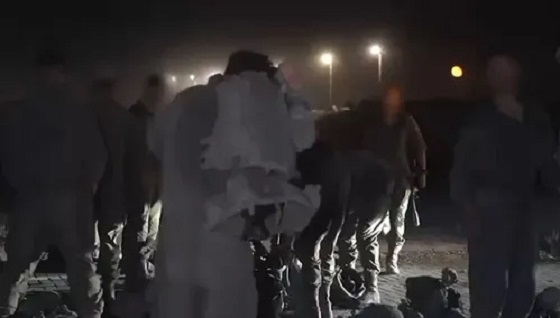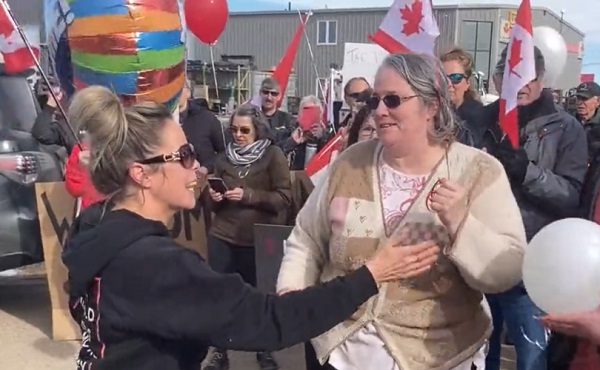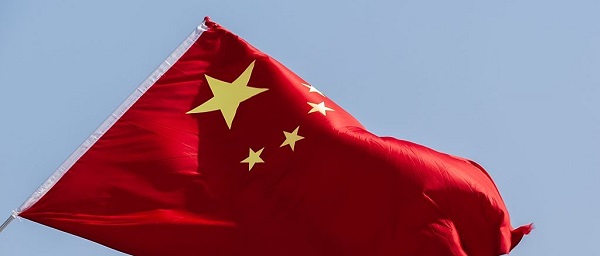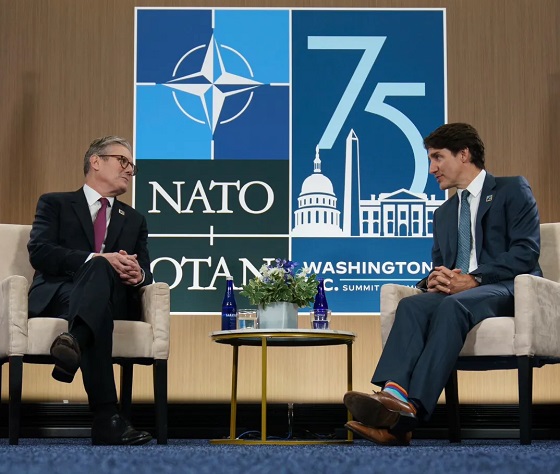Dan McTeague
’Net-Zero’ Carney’s going to build new pipelines? I’ll believe it when I see it!

By Dan McTeague
Ever since Mark Carney’s rise to power, people have been trying to sell me on the idea that he’s just what this country needs — a (supposedly) practical, no-nonsense businessman who can clean up the mess his highly-ideological predecessor, Justin Trudeau, left us in. To reinforce this claim, they point to the constant rumblings about Carney’s commitment to building new oil and gas pipelines in Canada.
I’m sorry, folks, but I’ll believe it when I see it.
Now, building new pipelines is an understandably popular idea. Construction alone would be a serious job creator. New pipelines would enable us to further capitalize on our abundant natural resources. They would pump up the domestic oil and gas supply, bringing down the cost of energy for families and businesses alike, thereby invigorating our economy and fortifying the Loonie.
They would also reinforce national unity at a time when that is being sorely tested.
Green propaganda has created and increasingly widened ideological divides over the resource sector, still the backbone of our economy. Our thriving activist class are happy to exploit these divisions and to do whatever they can to kill new resource projects before they get off the ground. Over time, this has made it just plain easier to sell Canadian fossil fuels to the US, which has been happy to take them off our hands.
Make no mistake, if we made good use of this period of unfortunately high tensions with our cousins to the south, by beefing up our energy infrastructure and fortifying our economy, which would ultimately make us a more attractive trading partner, I’d be all for it.
That said, anyone who believes that Carney is fully committed to new pipelines should revisit what he’s actually said on the matter. They would discover that he has been talking out of both sides of his mouth on pipelines since the moment he stepped out from behind the curtain and publicly took the reins of the Liberal Party. He’s been purposely vague when talking to pipeline-sympathetic crowds out west, and explicitly reassuring when speaking to anti-pipeline crowds elsewhere, saying things like “I would never impose [a pipeline] on Quebec.”
Which should surprise no one! Mark Carney is still Mark Carney. From his banking career to his time at the megafirm Brookfield, from his role as the UN Special Envoy for Climate Leadership and Finance to founding the (now collapsed) Glasgow Financial Alliance for Net Zero (GFANZ), he has spent his entire career working towards a net-zero global economy, no matter how disastrous this would be for the world generally and Canada specifically.
Carney himself described his magnum opus, GFANZ, as being “relentlessly, ruthlessly, absolutely focused on the transition to net-zero.” The same could be said about Carney himself.
Which is to say, though he is more sophisticated, Carney is no less of a “Green” ideologue than Justin Trudeau.
“But, but, but!” I can hear people saying, “He saved us from the carbon tax!”
To which I answer: No, he did not. A longtime apostle of carbon taxation generally, and of Trudeau’s carbon tax specifically, Carney’s main issue with the carbon tax was that it had become “too divisive” — meaning we had noticed its effect on our lives and started complaining about it. To fix that, he used what amounted to an accounting trick to hide it from our view.
Meanwhile, he remains committed to all of his party’s environmentalist legislation and regulations, including the Clean Fuel Standard, which jacks up the ethanol content of our gasoline, while progressively raising the price per litre; Bill C-48, the Oil Tanker Moratorium Act, which significantly reduces our ability to export our natural resources; Bill C-59, which bans businesses from touting the environmental positives of their work if it doesn’t meet a government-approved standard; and the egregious Electric Vehicle mandate, which forces us to buy, starting next year, cars which are poorly suited for our climate, geography, and lifestyle, and for which we simply do not have the infrastructure.
And, most pertinent to this discussion, Mark Carney remains committed to Bill C-69, the “No More Pipelines Act,” which even the Supreme Court said overstepped the federal government’s constitutional authority.
So despite all of their advantages, Mark Carney’s decades of net-zero commitments make the chances of us actually getting a single new pipeline out of this government extremely remote, probably nonexistent.
I’d love to be wrong. I don’t think I am.
Automotive
Canada’s EV subsidies are wracking up billions in losses for taxpayers, and not just in the auto industry

By Dan McTeague
To anyone who thought that the Liberals’ decision to postpone enforcement of their Electric Vehicle (EV) mandate by one year was part of a well-thought-out plan to get that disastrous program back on track, well, every day brings with it news that you were wrong. In fact, the whole project seems to be coming apart at the seams.
Here’s the latest crisis Mark Carney and his carnival of ideologues are having to deal with. Late last year, the Liberal party instituted a 100% tariff on Chinese-made EVs. The idea was to protect the Canadian EV industry from China dumping their vehicles into our country, at prices far lower than Canadian companies can afford due to their massive state subsidies. This has been a major problem in the EU, which is also attempting to force a transition to EVs.
But Beijing wasn’t going to take that lying down. Taking advantage of Western environmentalist sentiment is an important part of their economic plans — see, for instance, how they’ve cornered the global solar panel market, though the factories making them are powered by massive amounts of coal. So they retaliated with a 75% duty on Canadian canola seed and a 100% tariff on canola oil and canola meal.
This was big enough to really hurt Canadian farmers, and Ottawa was forced to respond with more than $300 million in new relief programs for canola producers. Even so, our farmers have warned that short-term relief from the government will do little if the tariffs are here for the long-term.
With pressure on Carney mounting, his Industry Minister Melanie Joly announced that the government was “looking at” dropping tariffs on Chinese EVs in the hope that China would ease off on their canola tariffs.
That may be good news for canola producers, but how about the automotive companies? They’ve grown increasingly unhappy with the EV mandate, as Canadian consumers have been slow to embrace them, and they’ve been confronted with the prospect of paying significant fines unless they raise prices on the gas-and-diesel driven vehicles which consumers actually want to make the EVs that they don’t really want more attractive.
That’s the context for Brian Kingston, CEO of the Canadian Vehicle Manufacturers’ Association, saying that dropping these tariffs “would be a disaster.”
“China has engaged in state-supported industrial policy to create massive overcapacity in EV production, and that plan is coming to fruition now,” Kingston said. “When you combine that with weak labour and environmental standards, Chinese manufacturers are not competing with Canadian, American, or Mexican manufacturers on a level playing field. We simply cannot allow those vehicles to be dumped into the Canadian market.”
The auto manufacturers Kingston represents are understandably upset about suddenly having to compete with underpriced Chinese EVs. After all, with the government forcing everyone to buy a product they really don’t want, are most people going to patriotically pay more for that product, or will they just grab whichever one is cheaper? I know which one I think is more likely.
And then there’s a related problem — the federal and provincial governments have “invested” somewhere in the neighborhood of $52.5 billion to make Canada a cog in the global EV supply chain. In response to Joly’s announcement, Ontario Premier Doug Ford, who has gone “all in” on EVs, wrote an open letter to the prime minister saying that canceling the tariffs would mean losing out on that “investment,” and put 157,000 Canadian automotive jobs at risk.
Now, it’s worth noting that automakers all over Ontario have already been cutting jobs while scaling back their EV pledges. So even with the tariffs, this “investment” hasn’t been paying out particularly well. Keeping them in place just to save Doug Ford’s bacon seems like the worst of all options.
But it seems to me that the key to untangling this whole mess has been the option I’ve been advocating from the beginning: repeal the EV mandate. That makes Canada less of a mark for China. It benefits the taxpayers by not incentivizing our provincial and federal governments to throw good money after bad, attempting to subsidize companies to protect a shrinking number of EV manufacturing jobs.
The heart of this trade war is an entirely artificial demand for EVs. Removing the mandate from the equation would lower the stakes.
In the end, the best policy is to trust Canadians to make their own decisions. Let the market decide.
Support Dan’s Work to Keep Canadian Energy Affordable!
Canadians for Affordable Energy is run by Dan McTeague, former MP and founder of Gas Wizard. We stand up and fight for more affordable energy.
Dan McTeague
Time is running out, Mr. Carney…

By Dan McTeague
U.S. tariffs continue to threaten the Canadian economy. Meanwhile, Canada’s debt levels continue to grow. The obvious solution is to develop our oil and gas and become an energy superpower. However, time is running out for Prime Minister Carney to act.
He’s talked a big game but has failed to act as anti-energy Liberal laws continue to drive away investment. This week, TC Energy and Enbridge have indicated they’d prefer to make investments in the U.S. instead of Canada.
Dan McTeague explains in his latest video.
-

 Alberta2 days ago
Alberta2 days agoFact, fiction, and the pipeline that’s paying Canada’s rent
-

 Alberta2 days ago
Alberta2 days agoAlberta Is Where Canadians Go When They Want To Build A Better Life
-

 International2 days ago
International2 days agoTrump-brokered Gaza peace agreement enters first phase
-

 COVID-191 day ago
COVID-191 day agoTamara Lich says she has no ‘remorse,’ no reason to apologize for leading Freedom Convoy
-

 Crime1 day ago
Crime1 day agoCanada’s safety minister says he has not met with any members of damaged or destroyed churches
-

 Business1 day ago
Business1 day agoTrump Warns Beijing Of ‘Countermeasures’ As China Tightens Grip On Critical Resources
-

 International1 day ago
International1 day agoTrump gets an honourable mention: Nobel winner dedicates peace prize to Trump
-

 Business18 hours ago
Business18 hours agoCarney government plans to muddy the fiscal waters in upcoming budget









